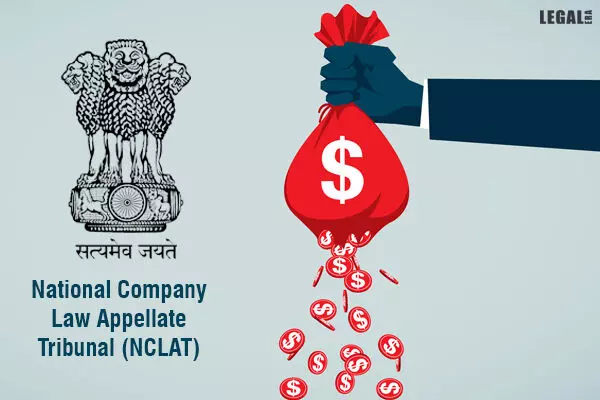- Home
- News
- Articles+
- Aerospace
- Artificial Intelligence
- Agriculture
- Alternate Dispute Resolution
- Arbitration & Mediation
- Banking and Finance
- Bankruptcy
- Book Review
- Bribery & Corruption
- Commercial Litigation
- Competition Law
- Conference Reports
- Consumer Products
- Contract
- Corporate Governance
- Corporate Law
- Covid-19
- Cryptocurrency
- Cybersecurity
- Data Protection
- Defence
- Digital Economy
- E-commerce
- Employment Law
- Energy and Natural Resources
- Entertainment and Sports Law
- Environmental Law
- Environmental, Social, and Governance
- Foreign Direct Investment
- Food and Beverage
- Gaming
- Health Care
- IBC Diaries
- In Focus
- Inclusion & Diversity
- Insurance Law
- Intellectual Property
- International Law
- IP & Tech Era
- Know the Law
- Labour Laws
- Law & Policy and Regulation
- Litigation
- Litigation Funding
- Manufacturing
- Mergers & Acquisitions
- NFTs
- Privacy
- Private Equity
- Project Finance
- Real Estate
- Risk and Compliance
- Student Corner
- Take On Board
- Tax
- Technology Media and Telecom
- Tributes
- Viewpoint
- Zoom In
- Law Firms
- In-House
- Rankings
- E-Magazine
- Legal Era TV
- Events
- Middle East
- Africa
- News
- Articles
- Aerospace
- Artificial Intelligence
- Agriculture
- Alternate Dispute Resolution
- Arbitration & Mediation
- Banking and Finance
- Bankruptcy
- Book Review
- Bribery & Corruption
- Commercial Litigation
- Competition Law
- Conference Reports
- Consumer Products
- Contract
- Corporate Governance
- Corporate Law
- Covid-19
- Cryptocurrency
- Cybersecurity
- Data Protection
- Defence
- Digital Economy
- E-commerce
- Employment Law
- Energy and Natural Resources
- Entertainment and Sports Law
- Environmental Law
- Environmental, Social, and Governance
- Foreign Direct Investment
- Food and Beverage
- Gaming
- Health Care
- IBC Diaries
- In Focus
- Inclusion & Diversity
- Insurance Law
- Intellectual Property
- International Law
- IP & Tech Era
- Know the Law
- Labour Laws
- Law & Policy and Regulation
- Litigation
- Litigation Funding
- Manufacturing
- Mergers & Acquisitions
- NFTs
- Privacy
- Private Equity
- Project Finance
- Real Estate
- Risk and Compliance
- Student Corner
- Take On Board
- Tax
- Technology Media and Telecom
- Tributes
- Viewpoint
- Zoom In
- Law Firms
- In-House
- Rankings
- E-Magazine
- Legal Era TV
- Events
- Middle East
- Africa
NCLAT Delhi: Liquidator Can Pursue Writ Petition On Behalf Of Corporate Debtor if NCLT Allows Liquidator To Prosecute under Section 33(5) Of IBC

NCLAT Delhi: Liquidator Can Pursue Writ Petition On Behalf Of Corporate Debtor if NCLT Allows Liquidator To Prosecute under Section 33(5) Of IBC
The National Company Law Appellate Tribunal (NCLAT) Delhi Bench, consisting of Justice Ashok Bhushan (Chairperson), Mr. Barun Mitra (Technical Member), and Mr. Arun Baroka (Technical Member), ruled that the liquidator is authorized to file a writ petition on behalf of the corporate debtor if the adjudicating authority has granted permission to the liquidator to act on behalf of the corporate debtor in accordance with Section 33(5) of the Insolvency and Bankruptcy Code, 2016 (IBC).
The appellant, CA Rajeev Bansal (liquidator) representing Isolux Corsan India Engineering & Construction Pvt. Ltd. (corporate debtor), submitted an interlocutory application seeking authorization to defend legal proceedings on behalf of the corporate debtor, both before and after liquidation. This permission was granted by the NCLT Chandigarh Bench on 28.04.2022.
Subsequently, the liquidator became aware of re-assessment proceedings initiated by the Commercial Tax Department. In order to protect the interests of the corporate debtor, the liquidator filed a writ Petition seeking to annul the re-assessment order and the accompanying demand.
During the hearing of the writ Petition, the Respondent raised an objection, contending that the Liquidator had not obtained prior approval from NCLT Chandigarh before initiating the writ Petition. Subsequently, the appellant filed an application with NCLT Chandigarh, which was dismissed in the order dated 29.11.2023.
The NCLAT Delhi allowed the application and ruled that the liquidator can pursue a writ petition on behalf of the corporate debtor when the adjudicating authority has permitted the liquidator to represent the corporate debtor as per Section 33(5) of the Insolvency and Bankruptcy Code (IBC).
The Appellate Tribunal observed that exceptions cannot be made to the requirement of law as contained in Section 33(5) of the IBC, which stipulates that legal proceedings may be instituted by the liquidator on behalf of the corporate debtor only with the prior approval of the Adjudicating Authority.
The Appellate Tribunal observed that the liquidator's intention while filing the application was to secure prior approval from NCLT Chandigarh to initiate legal proceedings on behalf of the corporate debtor. This intent was duly acknowledged and approved by NCLT Chandigarh through its order dated 28.04.2022. The subsequent application became necessary due to objections raised concerning the admissibility of the writ petition, stemming from the absence of prior approval for its filing.
NCLAT clarified that while there was no explicit approval specifically for filing the writ petition, the prior approval granted by NCLT Chandigarh to the liquidator to represent the corporate debtor should suffice. The adjudicating authority should have made it clear that the liquidator was fully authorized to pursue the writ petition on behalf of the corporate debtor.
NCLAT set aside the order dated 29.11.2023 and allowed the application, affirming that the proceedings initiated by the liquidator through the filing of the writ Petition were fully endorsed by the approval granted by NCLT Chandigarh.



